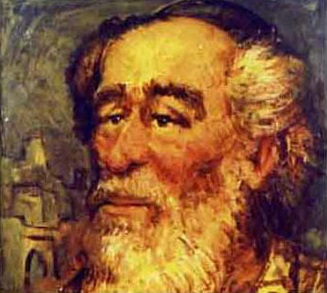
Jewish traveller, poet and neo-Platonic philosopher, Ibn Ezra was one of the most distinguished commentators on the Hebrew Bible and Hebrew grammarians of the Middle Ages.

Ibn Ezra was in then Muslim-ruled Navarre in Spain but eventually moved to Cordova where he lived as a full-time poet, paid for by wealthy patrons, at a time when Spain was at the height of her "Golden Age." In 1140, for reasons still not known with certainty, he was exiled from the country. He then began—with his good friend, Judah Halevi—a long journey across Europe (including a sting at Oxford) and the Mediterranean before arriving in Baghdad where he died. Coming from a Shephardinc background, his poetry sounded strange to the Ashkenazi Jews of Europe. That was when he discovered the value of his biblical understanding and began his career as a biblical commentator and Hebrew grammarian. Though conservative and he accepted the tradition of Oral Torah and the Talmud, he also dismissed many of their excesses, preferring a rather literal interpretation of the biblical text. His works, including some on astronomy, remains hugely popular and influential among modern Jews. He died in Israel, and his tombstone was re-discovered only recently in the northern city of Safed.

Further Reading & Resources:
☰ Stanford Encyclopedia of Philosophy
☰ Henry Abramson, Who Was Ibn Ezra? Jewish Biography as History Youtube ©ALBERITH
220221lch